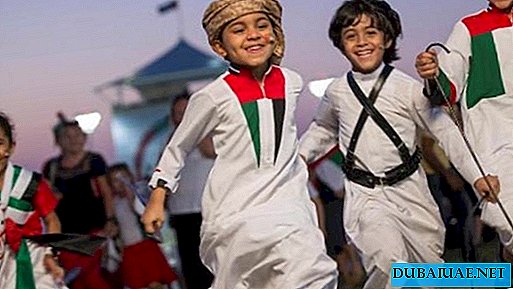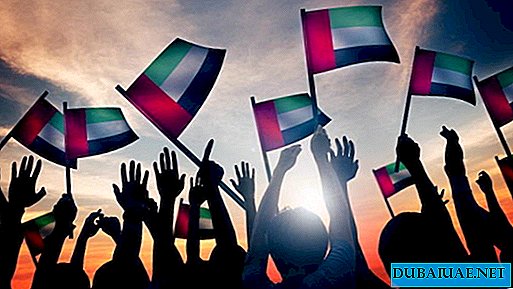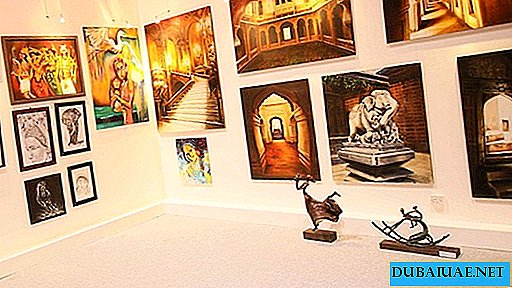
Buying property abroad, especially in resort countries, has always attracted our compatriots. Many of them opted for real estate in Dubai. What made them choose this particular city? We tried to consider all the pros and cons of buying property in Dubai. So, the main arguments:
 Plus: Sun, Sea and Sand
Plus: Sun, Sea and Sand
Dubai is a world-famous year-round tourist destination for family and outdoor activities, alluring with its warm sunny climate, white sandy beaches and the azure waters of the Persian Gulf. In Dubai, more than 345 days a year are sunny. There is plenty of heat and sun in both summer and winter. In summer, the average air temperature is about + 40 ° C, in winter - + 20-23 ° C during the day and about + 15 ° C at night. In the summer months, especially in July-August, of course, it is hot, but the rest of the time the weather in the Emirates is very pleasant. Especially in autumn and spring, when you can spend most of the day outdoors most comfortably. Rains are rare, mainly from November to March. The amount of precipitation is about 120 mm per year.
The sea water temperature on the beaches of Dubai practically does not fall below + 25 ° С. The only exception is the winter months, when the sea can cool to +20 degrees. Strong storms in the Persian Gulf are extremely rare. Most of the year the sea is calm, the height of the waves off the coast does not exceed 0.5 m.
Plus: Transport AccessibilityGeographically, Dubai is located very favorably. Within 4 hours of flight from Dubai, a third of the world's population lives. So a flight, say, from Moscow takes only five hours. At the same time, Dubai is in the same time zone as Moscow, i.e. for residents of the central regions of Russia there is no time shift requiring adaptation for long trips. And since Dubai International Airport is located within the city, the transfer from the airport takes no more than half an hour.
Today, direct regular and charter flights of such airlines as Emirates Airlines, Flydubai, Aeroflot, Transaero, S7 and others are carried out from Moscow, Samara, Yekaterinburg and several other large cities of Russia. For example, Emirates Airlines and Aeroflot operate two scheduled flights daily from Moscow to Dubai.
Plus: Developed infrastructure and quality of lifeDubai is a modern metropolis. Many call it the "city of the future", and they are not far from the truth. An amazing city that grew up on the edge of the desert, as if created in order to amaze the imagination of man. Skyscrapers that go into the clouds, huge airports, an ultramodern metro that can be dispensed with without drivers, amazing shopping centers with real ice rinks and ski slopes ... Everything has been created here for maximum comfort. The developed network of roads of the highest quality is practically devoid of such a vice as traffic jams, although more than a million cars fall on the two million inhabitants of Dubai.
Recently, the results of the Worldwide Quality of Living Survey, conducted annually by the British company Mercer Human Resource Consulting, were published. New York is traditionally taken as the base city for rating building. In terms of quality of life and, consequently, attractiveness for expatriates, Dubai ranks 75th among the 221 largest cities in the world (New York - 49th), and in terms of infrastructure development - 35th place (New York - 32- e). Experts compiled a rating based on an analysis of 39 criteria for each city, environmental situation, personal safety factors, level of education, transportation services and consumer services. And according to the independent expert council of the Legatum Institute from London, the United Arab Emirates is recognized as the best Arab country to live in, also ranked among the 50 best countries in the world.
Plus: Regional Business CenterAs already mentioned, Dubai, unlike most of the similar resort areas, is a large metropolis, which allows you to live an active business life while living at the resort. Dubai is located at the intersection of air and sea trade routes between Europe, Africa and Asia, which determines its development as the largest center of business activity in the region of the Middle East and North Africa. There is almost everything for this: free economic zones, which host the regional headquarters of leading international companies, the region’s largest seaport with modern infrastructure, the existing Dubai International Airport and the new Sheikh Maktoum Airport, which should become fully operational the largest in the world.
By the way, according to the latest data from the Airport Council International, Dubai International Airport occupies the 4th place in the world in terms of international passenger traffic and the 6th place in the world in terms of cargo traffic. Dubai International Airport is the only one in the top ten largest airports in the world showing double-digit growth rates over the past few years.
Today, Dubai International Airport serves more than 130 airlines operating flights to more than 220 destinations on five continents. The airport is the largest regional air transport center and provides about 30% of all passenger air traffic in the Middle East and North African regions.
Plus: SecurityThe United Arab Emirates and Dubai in particular are widely known for their high level of personal security and social stability. In a period of global tension and a growing wave of unrest in the world, the Emirates remains an island of reliability and security in the region. To a large extent this is due to the strict immigration policy of the authorities. It is no secret that citizens of the Emirates make up only about 15%, and the rest of the country's population are expatriates who need to obtain and periodically update their UAE resident status in accordance with established rules. At the same time, appropriate checks are carried out and if the expatriate’s reputation for some reason does not meet the selection criteria, he is refused a new resident visa.
In its annual report on the criminal situation and security in Dubai (United Arab Emirates Crime & Safety Report: Dubai), the Bureau of Diplomatic Security of the US Department of State (US Department of State, Bureau of Diplomatic Security) notes: "The UAE judicial system is fast and tough in with respect to criminals. Expatriates convicted of a crime receive a prison term with immediate deportation from the country, immediately after serving the sentence. "
According to studies by the independent British organization Legatum Institute, the UAE is ranked 18th in the world in terms of personal safety. In a study of 104 countries, which together account for about 90% of the world's population, Legatum Institute experts evaluated each country according to several criteria, including economic, social, indicators of security, civil liberty, public life and attitudes towards immigrants.
Emirates received the highest scores in terms of safety, ahead of the United States, Britain, Germany and France, as well as in terms of tolerance to immigrants. The United Arab Emirates is in second place among the countries with the lowest number of killings per hundred thousand people. And according to the results of the global poll Gallup World Poll, 95% of the population feel safe, being alone at night on the street, which is the highest indicator among all countries of the world.
Plus: Transparency of Real Estate LawOf all the seven emirates that make up the UAE, Dubai has the most developed and transparent legislative base in the real estate sector. According to the legislation of the Emirate of Dubai, citizens of foreign states who are not members of the Council for Cooperation of the Arab States of the Persian Gulf (GCC) have the right to directly acquire property in Dubai in full ownership ("freehold") in specially designated territories, in the so-called freehold areas. The list of such zones is established by Decree of the Ruler of Dubai No. 3 of 2006. These include almost the entire territory of "new Dubai", including such popular areas as Dubai Marina, The Palm Jumeirah, Emirates Living, Jumeirah Lakes Towers, Downtown Dubai and others.
Rights to real estate are registered in the special registry of the Dubai Land Department, and the owners are issued a certificate of registration (the so-called “Title Deed”).
Registration of real estate transactions is carried out at the time of the buyer’s and seller’s appeal, and immediately a registration certificate is issued to the buyer’s hands proving his ownership of the acquired property. This procedure of "instant" registration maximally simplifies the process of buying and selling real estate and minimizes possible risks, both on the part of the seller and the buyer.
Compliance is monitored by the Dubai Real Estate Market Regulatory Authority (RERA). It, in particular, is responsible for the registration of real estate projects, as well as for the mandatory registration of developers, real estate agencies and the agents themselves. The activities of RERA are primarily aimed at protecting the rights and interests of buyers and sellers and is designed to minimize the possibility of fraud on the part of agents. Checking the registration of any real estate agency and its agents is very simple. To do this, just go to the official RERA website at www.rpdubai.com
Plus: No taxesThere are no property and income taxes in the United Arab Emirates. VAT and sales taxes are also practically absent. Owning and real estate in Dubai, as well as generating income, for example, from its rental, does not entail any tax consequences for the owner within the UAE jurisdiction.
According to a report prepared jointly by the World Bank Group, the world's largest international network of firms offering professional consulting and audit services, PricewaterhouseCoopers (PwC) and the International Finance Corporation (International Finance Corporation), the tax system in the United Arab Emirates is one of the most attractive for business and ranks fourth in the world.
The Paying Taxes 2010 - The Global Picture report also notes that the UAE is among the top ten countries with the best economies, featuring the lowest Total Tax Rate (TTR) and one of the simplest requirements for doing business, which helps the country effectively attract foreign direct investment.
Plus: PriceIf we compare prices, for example, with Moscow or Yekaterinburg, then today there is a unique situation when housing prices in Dubai are much lower. For example, the price per square meter of fully finished apartments in the prestigious coastal areas of Dubai starts at only 2 thousand US dollars.
And an apartment on the famous artificial island Palm Jumeirah can be purchased for $ 2,500 per square meter. At the same time, residential real estate in Dubai is being commissioned with a fine finish, including full equipment with all plumbing, kitchen furniture and built-in appliances. All buildings without fail have parking spaces for residents, and most projects also have amenities such as a swimming pool, gym, playgrounds, 24-hour security, etc.
Plus: High rental incomeDubai is a city of visitors. More than 90% of the two million inhabitants of the metropolis are expatriates. Few of them can afford to buy their own housing, but everyone needs to live, work and relax somewhere. And therefore, the rental market is very developed. This, in turn, makes Dubai property attractive in terms of investment. Real estate in Dubai, especially residential, is capable of generating high current rental income. Much higher than similar real estate in Russia or in Western Europe.
If we talk about the average market indicators of the current return on investment in real estate, then for housing in Dubai today the indicator of net rental income (that is, income minus the cost of servicing real estate) is on average 5-10% per annum. The spread in profitability is due to differences in the type and category of real estate, its location and cost of services. Moreover, more expensive exclusive real estate, as a rule, gives less return in the form of rental income than mass housing in affordable projects.
As for the office real estate market, today such investments are less attractive in terms of rental income than the purchase of housing. Leasing of retail space (this includes not only shops, but also service points, cafes, restaurants, etc.) is potentially capable of generating higher incomes (up to 15%), however, this depends on the parameters of the property itself, and from factors external to it.
In addition, in Dubai, as, indeed, in the rest of the UAE, it is customary to pay rent a year in advance. As a rule, all payments are made by bank checks. Depending on the terms of the contract, the annual rental amount is paid by one or more checks. In the latter case, checks are dated by future dates. For example, if the number of checks is 4, then the dates of the checks will correspond to dates in the future every quarter, and if the number of checks is 12, they will be dated at intervals of a month. Accordingly, upon the date indicated on the check, the landlord can present it to the bank and receive money from the tenant's account. The issuance of unsecured checks in the UAE is a criminal offense, so paying by checks, although it does not give a 100% guarantee of rent, minimizes the risks of the lessor.
Minus: Visa modeThe flip side of the high level of security in the UAE is the strict selection criteria for obtaining resident visas for residence in the country. According to the federal legislation of the United Arab Emirates, the right to obtain a visa is granted to homeowners worth from 1 million UAE dirhams (approximately 274 thousand US dollars). If the value of the property is less, then you cannot obtain a visa based on the ownership of real estate in the Emirates. In this case, for permanent residence in the country, you can register your company (from 5500 US dollars), get a job in any of the local companies, enter a local educational institution or get a family visa from a close relative who already has resident status.
Less: Cultural FeaturesDubai is a modern multinational metropolis in which people of different nationalities, cultures and faiths live hand in hand. Dubai is the most loyal of the seven emirates of the federation to foreigners, and the local population here is less than 10% of the population. Nevertheless, the UAE is officially a Muslim country with its own laws, customs and traditions, which leaves a certain imprint on the daily life of the population.
There are quite strict standards of behavior, especially in public places. And although, according to many expatriates, the existing restrictions practically do not affect their lifestyle, the presence of cultural differences and characteristics cannot be discounted.
Less: Property Maintenance CostsThe owner of the property in Dubai is responsible for its proper maintenance and is obligated to pay the costs of its maintenance (the so-called Maintenance Fees or Service Charges) established by the management company or the Association of Homeowners (if one has already been created). The maintenance fee includes the costs of guarding the building, cleaning common areas, garbage collection, maintaining infrastructure (parking lots, swimming pools, gyms, recreation areas), etc. As a rule, such payments are charged annually and for Dubai are, depending on the project , somewhere from 20 to 80 dollars per square. m per year. When a property is rented, the cost of its maintenance is covered by rental income. However, if the property is not rented out, the costs of its maintenance must be taken into account, regardless of whether it is used or not.
 Less: Difficulties with lending
Less: Difficulties with lendingThe global financial crisis has forced banks in the UAE to review the rules and criteria for issuing loans for the purchase of real estate. And, although recently there has been a clear tendency towards an increase in the number of mortgage loans issued, it is almost impossible to obtain such a loan to a foreigner who does not have UAE resident status.
Mortgage loans today are issued mainly to public sector employees, as well as employees of large companies that are not on the black list. As a rule, in order to receive financing, it is necessary to pay at least 30% of the value of the property, and the minimum monthly income of the borrower must be at least 5,000 UAE dirhams (approximately 1,400 US dollars).
Thus, buying property in Dubai, you get:
- Property at the famous resort
- Property that can be reached quickly and easily
- Real estate in one of the best megalopolises for living in the world
- Real estate in the largest business center of the region
- Real estate in one of the safest cities in the world
- Real estate with a transparent title
- Property in tax-free jurisdiction
- Quality property at an affordable price
- High rental income
The choice is yours!
You can get additional information about real estate in Dubai from IMEX Real Estate specialists by phone in Moscow +7 495 5100008, toll-free phone in the UAE 800-IMEX (800-4639) or by sending a request by e-mail [email protected]












